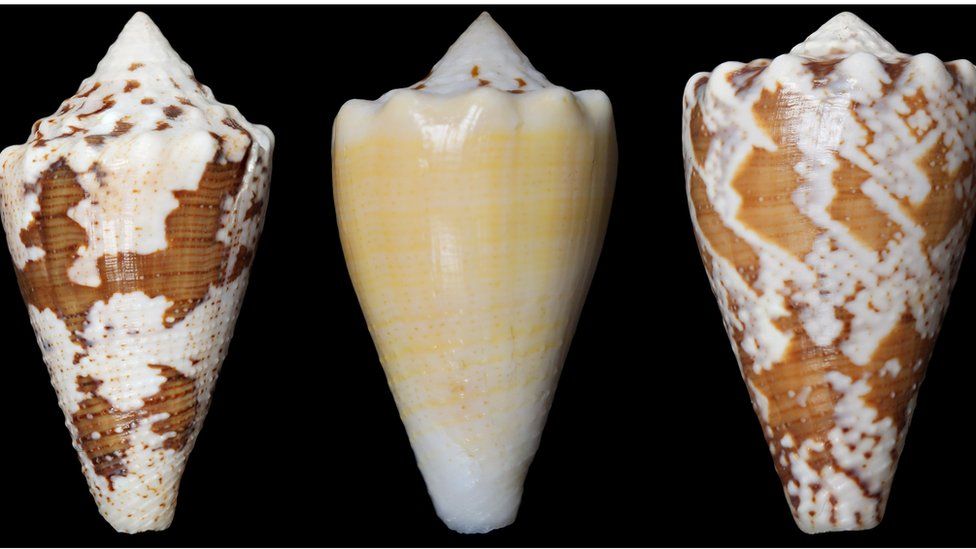Snail venom compound 'offers chronic pain therapy'
- Published
- comments

Venom from a small snail could be used to develop a treatment for chronic pain, scientists from the US suggest.
Normally used to paralyse or kill its prey, the venom also contains a compound that appears to act as long-lasting pain relief.
In research on rats, the compound was still working three days later.
The findings meant it may be possible to create a new pain therapy for patients who had run out of options, the researchers said.
Most medicines for moderate to severe pain, called opioids, work by reducing the perception of pain.
They do this by attaching to specific proteins in the brain and organs of the body, called opioid receptors.
But the Rg1A compound found in the venom of a Conus regius snail, a native of the Caribbean, works in a different way using a new pathway.
'Exciting'
Writing in the Proceedings of the National Academy of Sciences, scientists from the University of Utah said the compound appeared to have a beneficial effect on parts of the nervous system.
And this could open the door to new opportunities to treat pain, they said.
They said drugs that worked in this way could reduce the use of opioids, such as morphine, which are addictive and can cause a number of serious side-effects.
J Michael McIntosh, professor of psychiatry at the University of Utah Health Sciences, said: "What is particularly exciting about these results is the aspect of prevention.
"Once chronic pain has developed, it is difficult to treat," he said.
"This compound offers a potential new pathway to prevent pain from developing in the first place and offer a new therapy to patients who have run out of options."
In tests on rats, scientists found that those animals treated with a chemotherapy drug that caused them to be hypersensitive to cold and touch, experienced pain - but those also treated with the snail compound did not.
"We found that the compound was still working 72 hours after the injection, still preventing pain," Prof McIntosh said.